As a dog owner, you’ve probably noticed your furry friend sneezing or coughing and wondered if they could be coming down with a cold. While dogs don’t catch the same viruses that cause colds in humans, they can develop respiratory illnesses with similar symptoms. These “dog colds” can range from mild discomfort to more serious conditions requiring medical attention.

Understanding the causes, recognizing the symptoms, and knowing how to care for your dog when they’re under the weather are essential steps in ensuring their health and comfort. In this article, we’ll explore whether dogs can get colds, the common signs to watch for, effective treatment options, and preventive measures to keep your canine companion in top shape.
By staying informed, you can make the best decisions for your dog’s well-being and provide them with the care they deserve, no matter the season.
1. What Are “Colds” in Dogs?
While dogs can’t catch the same colds as humans, they can develop respiratory illnesses with similar symptoms, such as sneezing, coughing, and nasal discharge. These conditions are caused by pathogens specific to canines and are often referred to as “dog colds.” Understanding the nature of these illnesses is key to recognizing and addressing them effectively.
A. How Are Dog Colds Caused?
Cold-like symptoms in dogs are typically caused by viral or bacterial infections that target their respiratory system. These pathogens can spread through direct contact with an infected dog, shared water bowls, or exposure to contaminated environments, such as kennels or dog parks.
1. Common Viral Causes
Canine Adenovirus Type 2:
- A virus that primarily affects the respiratory tract.
- Symptoms include coughing, nasal discharge, and fever.
Canine Parainfluenza Virus:
- A highly contagious virus that’s a significant contributor to kennel cough.
- Causes mild to moderate respiratory issues, such as coughing and sneezing.
Canine Respiratory Coronavirus:
- Unrelated to the human coronavirus, it can cause mild upper respiratory symptoms.
2. Bacterial Causes
Bordetella bronchiseptica:
- A common bacterium associated with kennel cough.
- Can lead to persistent coughing and a runny nose.
B. How Dog Colds Differ from Human Colds
While humans experience colds due to rhinoviruses, these viruses are species-specific and don’t infect dogs. Similarly, the pathogens responsible for canine respiratory illnesses don’t typically pose a risk to humans. However, the symptoms in dogs can appear strikingly similar to human colds, leading to confusion among pet owners.
Understanding that your dog’s illness stems from canine-specific pathogens helps ensure they receive appropriate care. If you suspect your dog has a respiratory illness, observing their symptoms closely and consulting a veterinarian will ensure they receive the best possible treatment.

2. Recognizing the Symptoms
Identifying the symptoms of a cold-like illness in your dog is crucial for determining the appropriate course of action. While some signs may indicate a mild, self-limiting issue, others could point to a more serious condition requiring veterinary attention.
Mild Symptoms to Watch For
In many cases, a dog with a mild “cold” will display symptoms similar to those seen in humans with upper respiratory infections. These can include:
- Sneezing: Frequent sneezing without any other severe symptoms is often the first sign.
- Nasal Discharge: Clear or slightly cloudy nasal discharge is common in mild cases.
- Watery Eyes: Excessive tearing or slight redness in the eyes.
- Lethargy: A noticeable decrease in energy, though the dog may still eat and drink normally.
- Mild Cough: Occasional coughing, often dry or soft in nature.
These symptoms usually resolve within a few days with rest and supportive care.
When to Be Concerned
Certain signs suggest the illness may be more serious, such as:
- Persistent Symptoms: Coughing or sneezing that lasts more than a week.
- Green or Yellow Nasal Discharge: A sign of potential bacterial infection.
- Difficulty Breathing: Labored or noisy breathing indicates a need for immediate medical attention.
- Loss of Appetite or Refusal to Drink: Dehydration and lack of nutrition can worsen the condition.
- Lethargy Beyond Normal: If your dog seems unresponsive or severely fatigued, it’s time to consult a vet.
Prompt attention to these symptoms can prevent complications, such as pneumonia or more severe respiratory infections.
Case Study: Rocky’s Recovery
Rocky, a lively 3-year-old Labrador Retriever, started sneezing excessively after a weekend at the dog park. His owner noticed clear nasal discharge and occasional coughing over the next two days. Concerned but not alarmed, she ensured Rocky had plenty of water, reduced his outdoor activity, and kept him warm and comfortable indoors.
By the fourth day, Rocky’s symptoms were almost gone, and he was back to his energetic self. However, if Rocky’s symptoms had included green nasal discharge or lasted beyond a week, his owner would have scheduled a visit to the veterinarian for a closer evaluation.
This example highlights the importance of monitoring your dog’s condition and responding appropriately based on the severity of symptoms. Understanding these distinctions can help ensure your dog receives the right care at the right time.

3. Treating a Dog with Cold-Like Symptoms
When your dog shows signs of a cold, prompt and thoughtful care can help them recover more comfortably and quickly. Addressing their symptoms with supportive treatment at home, while knowing when to involve a veterinarian, is key to ensuring their well-being.
A. Rest and Recovery
Just like humans, dogs need rest to recover from illnesses. Create a calm, cozy environment for your dog to relax in.
- Comfortable Space: Provide a warm, quiet area away from drafts or busy household activities.
- Minimize Stress: Avoid unnecessary outings or interactions with other pets to help your dog conserve energy.
- Soft Bedding: Use clean, soft blankets or a heated dog bed to keep them comfortable.
B. Hydration and Nutrition
Staying hydrated and nourished is essential for your dog’s recovery. Here’s how you can encourage them:
- Fresh Water: Ensure access to clean, fresh water at all times. If your dog isn’t drinking enough, try adding a small amount of low-sodium chicken broth to make it more appealing.
- Easy-to-Digest Foods: Offer bland, soft foods like boiled chicken and rice if their appetite is reduced. These are gentle on the stomach and provide energy.
- Frequent, Small Meals: Breaking meals into smaller portions can make eating less daunting for your dog.
C. Veterinary Care
While many cases of cold-like symptoms resolve on their own, certain situations require professional intervention.
When to Visit the Vet: Persistent symptoms, difficulty breathing, green or yellow nasal discharge, or a refusal to eat or drink for more than 24 hours should prompt a trip to the veterinarian.
Potential Treatments: Depending on the diagnosis, your vet may prescribe:
- Antibiotics for bacterial infections (e.g., Bordetella).
- Cough suppressants or anti-inflammatories for severe coughing.
- Fluids to combat dehydration in more severe cases.
D. Home Remedies and Supportive Care
Simple home remedies can help alleviate symptoms and provide additional comfort:
- Humidifiers: Using a humidifier or placing your dog in a steamy bathroom for short periods can ease nasal congestion and coughing.
- Warm Compresses: Apply a warm, damp cloth to clean and soothe irritated noses.
- Limit Outdoor Time: Keep your dog indoors, especially in cold or damp weather, to prevent aggravating their symptoms.
- Natural Supplements: Consult your vet about safe immune-boosting supplements, like omega-3 fatty acids or vitamin C.
By addressing your dog’s symptoms thoughtfully and knowing when to seek professional help, you can ensure a smoother recovery. A combination of rest, hydration, and appropriate care sets the foundation for your pet’s return to health.
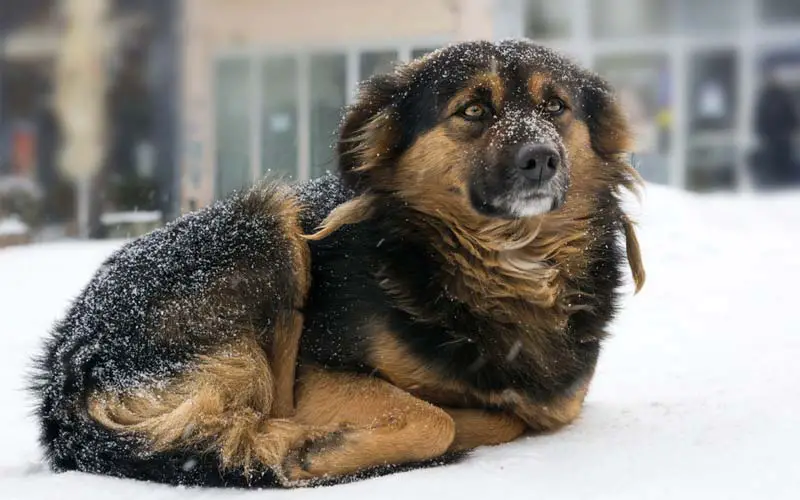
4. Preventing Respiratory Illnesses in Dogs
While respiratory illnesses in dogs are common, there are several proactive measures you can take to minimize the risk of your dog catching a cold or other respiratory infections. By focusing on vaccinations, hygiene practices, avoiding risk factors, and maintaining a healthy lifestyle, you can strengthen your dog’s defenses against illness and ensure they stay happy and healthy.
Vaccinations
Vaccination is one of the most effective ways to prevent respiratory illnesses in dogs. There are several key vaccines that provide protection against some of the most common pathogens responsible for cold-like symptoms:
- Kennel Cough (Bordetella bronchiseptica): This highly contagious respiratory infection is a primary concern in environments where dogs interact with each other, such as kennels or dog parks. The Bordetella vaccine is often required for dogs who participate in group activities.
- Canine Influenza: Similar to the human flu, canine influenza is caused by the H3N2 or H3N8 viruses. The canine flu vaccine can help protect dogs, particularly those that are exposed to other dogs in high-traffic areas like boarding facilities, doggy daycare, or dog shows.
- Parainfluenza and Adenovirus: These viruses are included in the core vaccine for dogs (DHPP), protecting against a range of respiratory issues. Keeping your dog’s vaccinations up to date is essential for reducing their risk of illness.
Hygiene Practices
Regular cleaning and maintaining a hygienic environment are key to preventing the spread of respiratory infections:
- Bedding: Wash your dog’s bedding frequently to remove germs and allergens that could contribute to respiratory issues.
- Toys and Bowls: Clean toys, food, and water bowls regularly with hot, soapy water to avoid bacteria buildup.
- Shared Spaces: If your dog frequents communal areas like dog parks or boarding facilities, consider disinfecting their collar and leash after every visit to avoid transferring germs.
Avoiding Risk Factors
Exposure to sick dogs or environments with poor ventilation can increase the likelihood of your dog catching an infection:
- Limit Contact with Sick Dogs: If you know a dog in your community is showing symptoms of a respiratory illness, avoid letting your dog interact with them until they have recovered.
- Proper Ventilation: Ensure that your dog’s living space is well-ventilated, especially in areas where multiple dogs spend time together. Poor air circulation can create an environment where viruses and bacteria thrive.
- Avoid Overcrowded Spaces: Dog parks and kennels can be breeding grounds for respiratory infections. If possible, limit your dog’s exposure to these crowded environments, particularly during peak illness seasons.
Healthy Lifestyle
A healthy immune system is your dog’s best defense against illness. By promoting overall health, you can reduce the risk of respiratory infections and ensure your dog’s body is better equipped to fight off germs:
- Balanced Diet: A nutritious diet rich in proteins, vitamins, and minerals supports your dog’s immune system and helps them fight infections more effectively.
- Regular Exercise: Routine exercise not only keeps your dog fit but also helps to regulate their immune function, ensuring they are strong and resilient.
- Reduced Stress: Chronic stress can weaken your dog’s immune system, making them more susceptible to illnesses. Provide a stable, predictable environment and minimize stressors like sudden changes or disruptions in their routine.
By implementing these preventive measures, you can significantly reduce the chances of your dog developing a respiratory illness. A combination of proper vaccinations, cleanliness, minimizing exposure to risks, and maintaining a healthy lifestyle will help keep your dog protected and thriving.
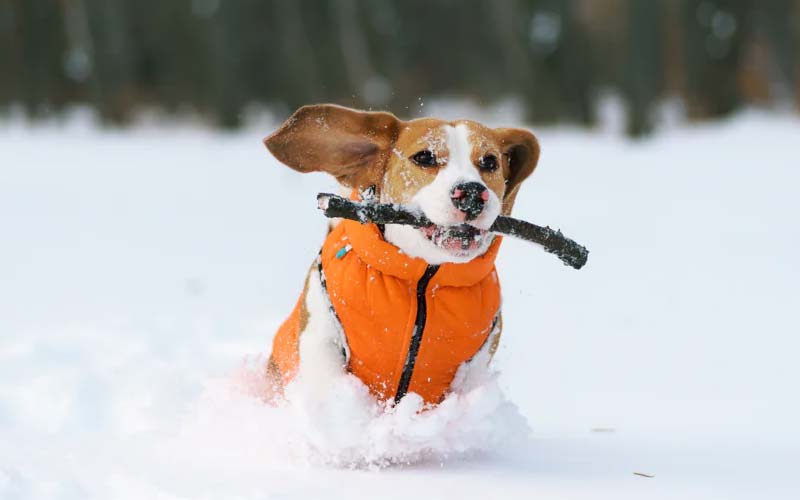
5. Can Dogs Catch Colds from Humans or Vice Versa?
A common question among dog owners is whether colds can be passed between humans and their canine companions. While it’s easy to imagine a scenario where your dog picks up a sniffle from you or vice versa, the truth is that the cold viruses that affect humans and dogs are species-specific and do not cross between species.
Debunking the Myths About Transmission Between Species
Many pet owners worry that their dog might catch a cold from them, especially during the colder months when both humans and dogs are more likely to experience respiratory symptoms. However, this is a myth. Human cold viruses, such as rhinoviruses, are designed to infect human cells and cannot infect dogs. Likewise, the viruses that cause respiratory issues in dogs, such as canine parainfluenza or adenovirus, are specific to dogs and do not affect humans.
In short, you cannot give your dog a cold, nor can they pass one onto you. The cold symptoms that both species exhibit—sneezing, coughing, and nasal discharge—are similar because both are experiencing upper respiratory issues, but the underlying viruses or bacteria are different.
Zoonotic Diseases and Why Cold Viruses Are Species-Specific
While some diseases can jump from animals to humans (known as zoonotic diseases), cold viruses are not among them. Zoonotic diseases are typically caused by pathogens that are capable of infecting both animals and humans. These include diseases like rabies, Lyme disease, and certain strains of influenza.
Cold viruses, however, have evolved to target specific species. For example, human rhinoviruses attach to receptors in human cells, while viruses like canine adenovirus bind to receptors specific to canine cells. This specificity prevents the transmission of colds between humans and dogs.
It’s important to note that while the risk of catching a cold from your dog is nonexistent, there are some zoonotic respiratory illnesses—such as certain strains of influenza—that can affect both humans and dogs. Canine influenza, for example, is one such virus that can infect both species, but it’s not a common occurrence and does not typically cause the same symptoms in both.
Conclusion
The bottom line is that while dogs and humans may share similar symptoms when it comes to respiratory infections, the viruses causing these issues are species-specific. Dogs cannot catch a cold from humans, and humans cannot catch one from dogs. Understanding this can help alleviate concerns about spreading illness between species and enable dog owners to better focus on preventing and treating their pets’ health issues.
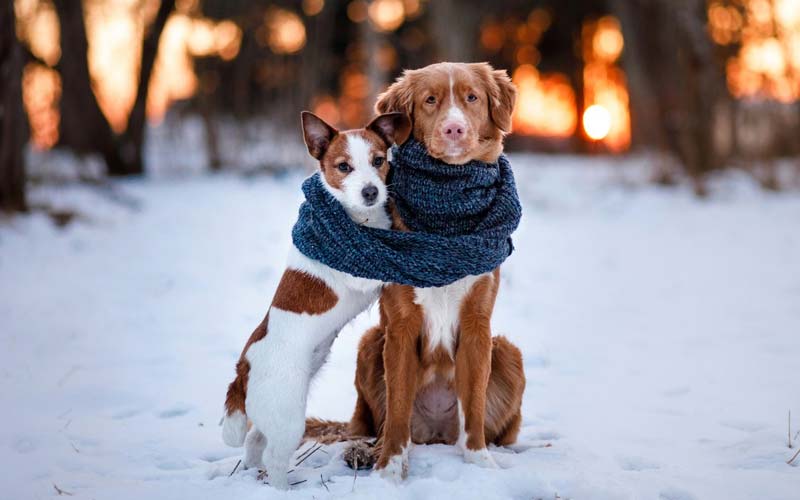
6. Common Misconceptions About Dog Colds
When it comes to dog health, there are several myths and misconceptions that can confuse pet owners, especially when their dog starts showing cold-like symptoms. Understanding the truth behind these myths can help you make informed decisions about your dog’s care and avoid unnecessary worry. Below, we address some of the most common misconceptions about dog colds.
Myth #1: Cold Weather Causes Colds
It’s a widespread belief that cold weather directly causes colds in dogs, but this is not true. While colder temperatures can make dogs more vulnerable to infections, cold weather itself does not cause colds. The viruses and bacteria that lead to respiratory issues in dogs are spread through direct contact with infected animals, not simply because it’s chilly outside.
However, winter months often mean dogs are confined indoors more frequently, which can increase the likelihood of exposure to infected animals, especially in crowded environments like doggy daycares or boarding kennels. Additionally, dogs that are stressed or have weakened immune systems during colder months may be more susceptible to illness, but the cold itself is not the direct cause.
Myth #2: All Coughing Dogs Have Kennel Cough
Another common misconception is that every dog with a cough must have kennel cough, a condition caused by Bordetella bronchiseptica. While coughing is a prominent symptom of kennel cough, it is not the only reason a dog may cough. Coughing can also result from other respiratory infections, allergies, or even something as simple as a foreign object caught in the throat.
In fact, kennel cough is just one of several respiratory illnesses that can cause coughing, and it is not the most common cause of all coughs. Other possible causes include:
- Canine Influenza: This virus can cause coughing, nasal discharge, and fever.
- Canine Parainfluenza: Another viral infection that can mimic kennel cough symptoms.
- Heart Disease: Some dogs with heart conditions may develop a chronic cough.
- Allergies or Irritants: Pollens, dust, and smoke can lead to coughing, especially in sensitive dogs.
If your dog is coughing, it’s important to observe their other symptoms, such as nasal discharge or lethargy, and consult a veterinarian for an accurate diagnosis.
Myth #3: Dog Colds Are Just Like Human Colds
It’s easy to assume that because humans and dogs can both experience similar respiratory symptoms, their colds are caused by the same viruses. However, the viruses that cause cold-like symptoms in dogs are specific to canines and differ from the ones that cause human colds. For instance, human cold viruses, like rhinoviruses, cannot infect dogs, and the viruses that affect dogs do not impact humans.
Another distinction is that while human colds typically resolve on their own with rest and fluids, a dog’s cold-like illness could be more serious, and it’s essential to consult a veterinarian if symptoms persist or worsen. Unlike human colds, which are often self-limiting, some canine respiratory issues, such as kennel cough, may require medical treatment.
Myth #4: You Shouldn’t Let Your Dog Outside When They Have a Cold
While it’s important to allow your dog to rest when they’re not feeling well, simply keeping them inside during cold weather isn’t always the best course of action. Fresh air and some gentle exercise can actually help prevent complications such as pneumonia and improve your dog’s mood. The key is to limit strenuous activity and ensure your dog is not exposed to harsh weather conditions or overexertion.
However, if your dog is coughing, sneezing, or showing signs of a more severe respiratory illness, it’s best to limit their exposure to other dogs and keep them indoors to prevent spreading the infection.
Myth #5: Dog Colds Never Need Veterinary Care
Many pet owners believe that dog colds, like human colds, will go away on their own without medical intervention. While mild cases often resolve with rest and supportive care, there are instances where a visit to the vet is necessary. Persistent symptoms, difficulty breathing, or refusal to eat or drink could indicate a more serious condition that requires veterinary treatment. In some cases, a bacterial infection could develop, necessitating antibiotics or other medications.
A veterinarian can help diagnose the underlying cause of your dog’s symptoms and provide the appropriate treatment to speed up their recovery and prevent complications.
Conclusion
By debunking these common misconceptions, you can better understand the nature of cold-like illnesses in dogs and how to address them. Not all coughing dogs have kennel cough, and cold weather isn’t the direct cause of colds. Understanding the true causes and symptoms of respiratory illnesses in dogs is essential for providing the best care possible, ensuring your dog recovers quickly, and keeping them healthy.
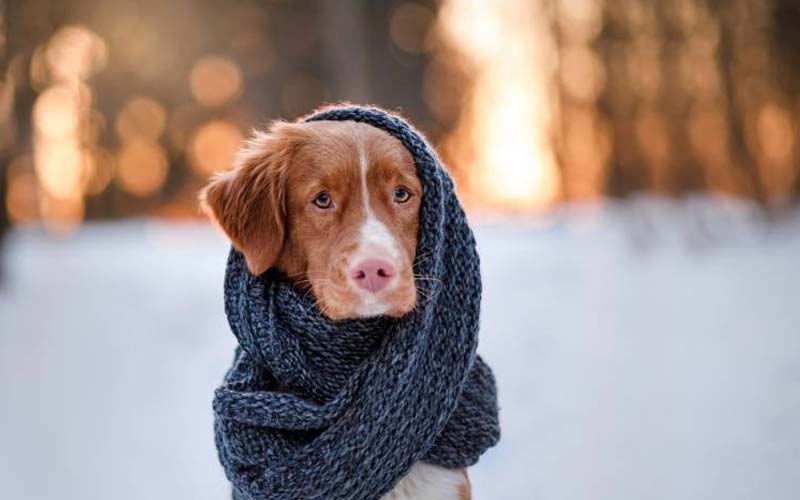
7. Final Tips for Caring for a Sick Dog
When your dog starts showing symptoms of a cold or respiratory illness, it’s essential to approach their care with a clear plan. By staying organized and vigilant, you can ensure that your dog receives the attention and treatment they need for a smooth recovery. Below is a helpful checklist to guide you through caring for a sick dog and some important tips to keep in mind.
A. Checklist for Caring for Your Sick Dog
Monitor Symptoms
- Observe your dog’s behavior and keep track of any symptoms, such as sneezing, coughing, nasal discharge, or lethargy.
- Note the severity and duration of these symptoms. If they persist beyond a few days or worsen, seek veterinary care.
- Keep an eye on appetite and water intake. If your dog refuses to eat or drink for more than 24 hours, contact your vet.
Ensure Comfort and Rest
- Set up a quiet, warm, and comfortable area for your dog to rest in.
- Provide soft bedding and minimize stress or activity that could exhaust your dog further.
- Encourage gentle rest and avoid strenuous exercise during recovery.
Hydration and Nutrition
- Offer fresh water regularly to keep your dog hydrated. If they’re not drinking, try adding low-sodium chicken broth to entice them.
- Provide easy-to-digest food like boiled chicken and rice if your dog is eating less than usual.
- If your dog is still not eating or drinking after a day, or if their symptoms worsen, contact your veterinarian.
Supportive Care
- Consider using a humidifier or placing your dog in a bathroom with steam to help ease congestion.
- Gently wipe your dog’s nose if they have excess mucus, using a soft cloth or baby wipe to prevent irritation.
- Avoid exposure to cold or damp environments, and keep your dog indoors until they have fully recovered.
Keep Their Environment Clean
- Regularly clean your dog’s bedding, toys, and food/water bowls to prevent further exposure to germs.
- If your dog has been around other dogs in shared spaces (e.g., dog parks or boarding facilities), disinfect their collar, leash, and belongings.
Monitor Breathing
- Pay close attention to your dog’s breathing. If you notice labored, noisy, or rapid breathing, it could indicate a more severe condition, such as pneumonia.
- Difficulty breathing is an emergency and should be addressed by a veterinarian immediately.
Vet Check-Up
- If your dog’s symptoms are severe, persistent, or if you’re unsure whether it’s just a mild cold or something more serious, schedule a visit to the veterinarian.
- Veterinary care is especially important if your dog is having trouble breathing, has green or yellow nasal discharge, or has stopped eating and drinking.
- Follow your vet’s instructions regarding medication, treatment, and aftercare.
B. When to Seek Veterinary Help
While mild cold-like symptoms can often be managed at home, some signs indicate the need for professional care:
- Persistent or Worsening Symptoms: If your dog’s symptoms last more than a week or worsen despite rest, consult a vet.
- Difficulty Breathing: If your dog is panting excessively, wheezing, or struggling to breathe, immediate veterinary attention is required.
- Severe Lethargy or Loss of Appetite: If your dog becomes very lethargic or refuses to eat and drink for an extended period, it could indicate dehydration or a more serious infection.
- Discharge: Green or yellow nasal discharge can be a sign of a bacterial infection that may require antibiotics.
C. Final Thoughts
Caring for a sick dog requires patience, attention, and a willingness to seek help when necessary. By closely monitoring your dog’s symptoms, providing a comfortable environment, and maintaining proper hydration and nutrition, you can support their recovery. Always trust your instincts—if you’re concerned about your dog’s health or if their symptoms worsen, don’t hesitate to contact your veterinarian. With the right care, most dogs recover from mild cold-like illnesses quickly and without complications.
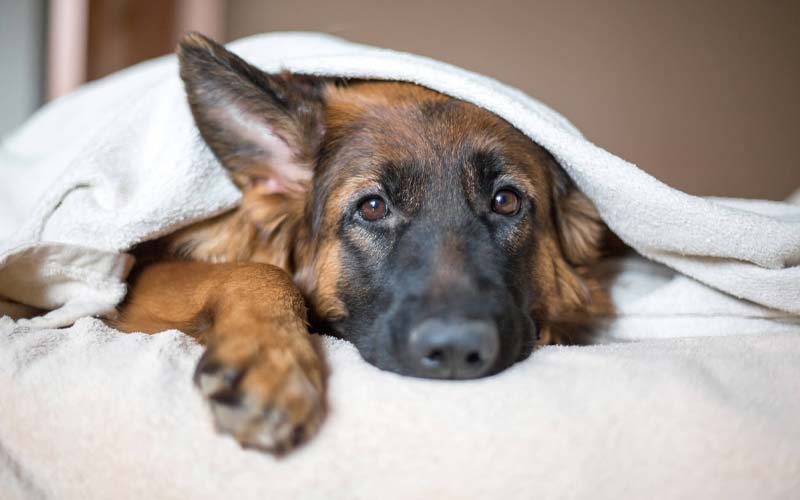
Conclusion Do dogs get colds
In summary, while dogs can experience cold-like symptoms similar to those of humans, their “colds” are typically caused by viruses and bacteria specific to dogs, such as canine parainfluenza, kennel cough, and canine adenovirus. By understanding the causes, symptoms, and treatment options for these respiratory illnesses, you can provide your dog with the best care during their recovery.
Key points to remember:
- Cold-like symptoms in dogs should be carefully monitored, and early intervention is crucial if symptoms worsen or persist.
- Rest, hydration, and nutrition are essential for supporting your dog’s recovery, and in some cases, professional veterinary care may be required.
- Preventative measures such as vaccinations, hygiene practices, and a healthy lifestyle can help reduce the risk of respiratory illnesses in your dog.
- Myths such as “cold weather causes colds” or “all coughing dogs have kennel cough” can be misleading, so it’s important to base your understanding on facts backed by veterinary science.
If your dog shows signs of illness, take action by closely monitoring their symptoms, providing a comfortable recovery space, and consulting a veterinarian when necessary. With the right care and attention, your dog can make a full recovery and return to their happy, healthy self. Always remember, when in doubt, it’s better to seek professional help than to wait and risk your dog’s health. Your vigilance and proactive care will ensure your dog’s well-being and comfort through any illness.